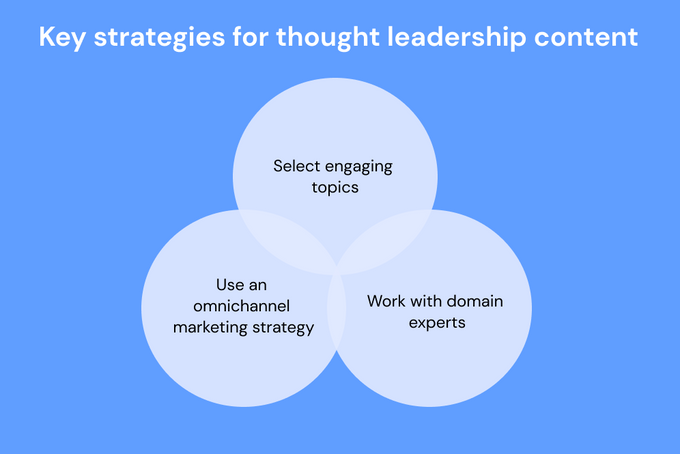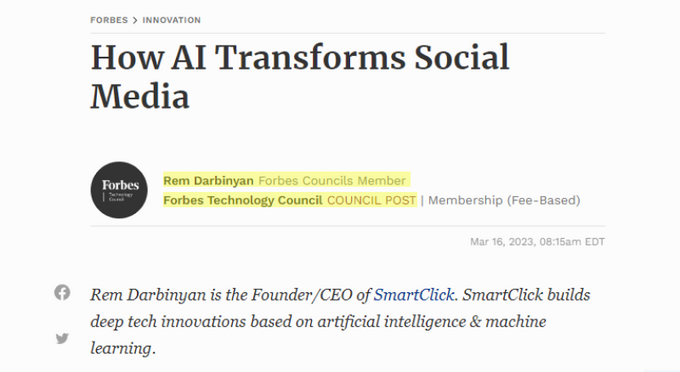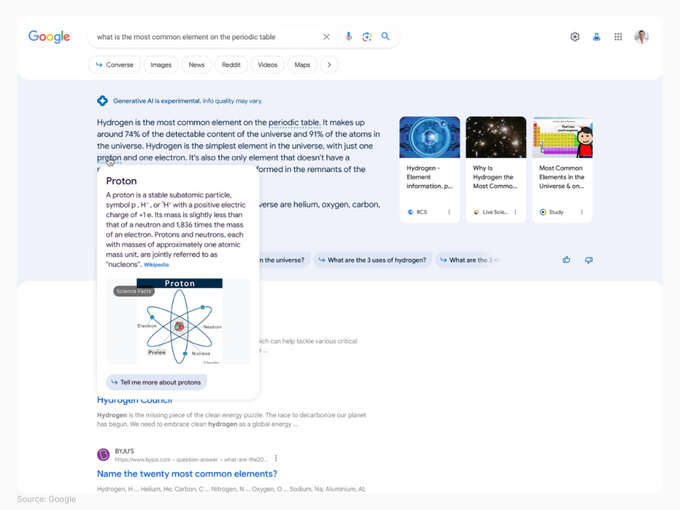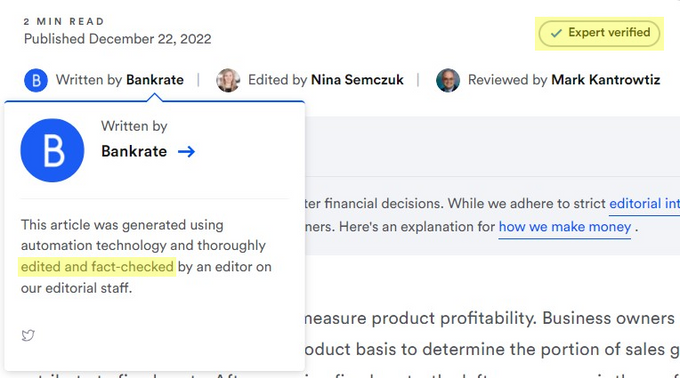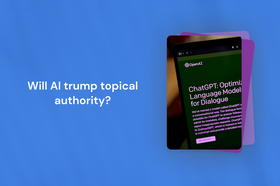Thought leadership vs. AI content: Why authenticity wins every time
Discover why human insights and perspectives continue to shape the future of content creation in the battle between thought leadership and AI.
Published June 13, 2024

AI Summary
Key takeaways
- Thought leadership content is vital in the AI era to engage audiences and establish brand authority.
- Effective thought leadership content needs engaging topics, expert collaboration, and omnichannel marketing.
- AI-driven content hyperinflation increases the need for unique, high-quality content.
Artificial intelligence is turning the tables on content creation, making thoughtful, expert-driven content more important than ever. Human expertise and perspectives help content stand out and resonate with audiences, making it a worthy component of any content strategy.
In its initial phase, content marketing relied heavily on expert insights from industry leaders. As businesses began to outsource content creation and integrate AI technology, the quality of the content started to decline, spotlighting the need for a return to authentic, expert-driven content.
The building blocks of thought leadership content
To build effective thought leadership content that resonates with your audience and establishes your brand's authority, you can rely on three strategies.
1. Selecting engaging topics
Companies traditionally concentrate on bottom-of-the-funnel content (their products) and far top-of-the-funnel content (brand awareness). Meanwhile, the middle of the funnel, a goldmine of informational content, doesn't get as much attention.
Thought leadership content fills this gap, offering immense opportunities for brand exposure and maximizing reach.
Backed by expertise and offering genuine value, this content type is instrumental for businesses aiming to establish topical authority and stay relevant.
2. Work with domain experts
Thought leadership content should be helpful and accurately target its intended audience. Ideally, the creator should be an expert in their respective field, adding value and authority to the information.
For example
When Sam Altman, CEO of OpenAI, discusses AI and generative AI, his expertise adds significant authority to his insights, positioning him as a thought leader in his industry.
3. Use an omnichannel marketing strategy
For businesses to really make the most of thought leadership content, they need to go all in on an omnichannel marketing strategy. This means sharing top-notch content across all platforms—your website, blog, and social media channels.
With search and social media merging more and more, being everywhere at once is key for reaching your audience effectively.
» Maximize your reach with videos for social media.
The role of AI in creating thought leadership content
These days, AI is doing a lot more than just gathering and summarizing data. It's working more like a brain, predicting and learning in ways that mimic human conversation. With this kind of power, AI can create thought leadership content—it can look at vast amounts of data, spot trends, and even make sense of complicated medical and scientific info.
While using AI can make the content creation process more efficient, human editors are crucial in ensuring that the information presented is accurate, trustworthy, and aligned with high editorial standards.
This collaboration between AI and human editors improves the quality and reliability of the content, building trust among readers and strengthening a company like Bankrate's reputation as a reliable source of financial information.
» Learn about the negative effects of AI-generated content on SEO.
Can AI replace experts in thought leadership content?
When it comes to thought leadership content, the focus should be on the value rather than the source. If AI can deliver valuable content, there's no reason to dismiss it. The goal should be to deliver high-value content, emphasizing the quality of information over the creator's identity.
Can you leverage AI to enhance thought leadership content?
The true worth of content isn't about how it's made—it's about how relevant and helpful it is.
AI can help shape your content, covering topics in a complete way, coming up with new ideas, and even rewording content.
While we're still finding out all the ways we can use AI, there's no doubt it's a powerful tool for improving content quality.
» Explore how AI will affect topical authority.
The value of thought leadership content in the age of AI
With AI shaking things up in marketing and content creation, we've got to ask ourselves: What kind of content will still matter in these changing times? What will people want to consume, and where will they find it?
To engage potential customers, the focus should be on informational and educational content. Despite rapid developments in AI technology, thought leadership content emerges as the most relevant type of content for this stage of the customer journey.
AI and content creation challenges
AI tools, including advanced language models like ChatGPT, have revolutionized content creation by making it more efficient and accessible. These advancements also bring new challenges, particularly in marketing.
The main concern isn't just about automating content creation. It's about how we use this AI-generated content to effectively reach and engage our target audience and support our broader marketing strategies.
What happens when content creation becomes too easy?
AI tools have made content production easy and fast, leading to content hyperinflation. As a result, creating unique and high-quality content that engages audiences is now crucial in a crowded marketplace.
» Find out which types of content AI can't master.
Striking the right balance
Thought leadership content stands out as a content type businesses need to invest in, offering a solution in an otherwise saturated market. However, it's still important to find balance within your content strategy as technology continues to advance.
By investing in AI-powered strategies but still prioritizing content quality, businesses can carve a distinctive niche in the digital realm, driving sustained engagement and growth.

